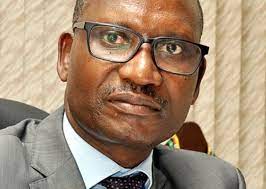TRANSPARENCY: CoST Uganda Commissions 2nd Infrastructure Transparency Index
By PATRICK JARAMOGI
KAMPALA, Uganda|SHIFTMEDIA| Every day there is a new record number of reported Covid-19 coronavirus cases in Uganda.
Currently, we have 21,409 cases, with 206 deaths and 9,044 recoveries out of the 633,932 tests conducted so far, as of December 4 2020.
But when you see something coming yet don’t do a whole lot to change what’s coming, what’s coming will come.
President Yoweri Museveni announced on Sunday that Covid-19 vaccine trials will start on December 15, something that sounds good amidst the rising numbers.
Scientists predict numbers to surge to over 50,000 with hundreds of deaths by January, as the nation goes to the polls and if scores of Ugandans travel to the rural areas for the festive season.
Much as the vaccine trials commence, we need to ask ourselves why are Covid-19 cases surging?
We all know that behaviour change is tough, and getting people to do even simple things differently for just a minute can be difficult, let alone for months.
This explains the reasons the Minister for Health Dr Jane Ruth Aceng gives saying the numbers of infections may be higher than what is on record.
The Centers for Disease Control and Prevention estimates that over 50% of the Covid-19 coronavirus transmissions occur from people who don’t even realize that they are infected.
But the reason most Covid-19 patients recovered in the first 4 months, according to a close professor, was the fact that they were being treated using the Hydroxychloroquine packs that Uganda secured from India.
“We didn’t lose a single life until we received instructions from WHO to stop using them, and straight away we started losing lives,” said the source.
Now, these tabs are being sold at very exorbitant prices (Ugx4,000-$1.2) in leading pharmacies. At a price of shs4,000 per tablet, it becomes practically hard to afford enough dose to sustain the virus, no wonder the rise in deaths.
Will Uganda’s Covid-19 vaccine succeed?
President Museveni noted that six of the seven developed products are already under trial with one being used as an immune booster already.
“Scientists told me that all the three are anti-virals that kill the virus and limits the damage of the virus to the body,” said Museveni
These first Covid-19 vaccine trials will be conducted by the Uganda Virus Research Institute in partnership with the Imperial College London.
But positivity among Ugandans regarding testing for vaccines is wanting, especially after some western doctors decided that Africans be used as guinea pigs for testing of their vaccine.
But the criteria of selecting those to be used for the clinical trials remains a contestation. Though Prof Kaleebu from the Uganda Virus Research Institute said volunteers will be educated first.
What is in place so far?
In recent months, three vaccine manufacturers, Pfizer, followed by Moderna and then AstraZeneca, have offered some preliminary results from their Phase 3 clinical trials. And those numbers have looked good.
Pfizer mentioned a vaccine efficacy of above 90% for its mRNA-based vaccine candidate, BNT162b2, Moderna a vaccine efficacy of 94.5% for its mRNA-1273, and AstraZeneca a vaccine efficacy of up to 90% for its AZD1222.
Ninety percent seems an impressive number, however, these are still very preliminary results. Don’t start dreaming about starting a new life with the vaccines just yet.
Like for Ugandans, we may take some time to get the vaccines, let alone the cost, may not be affordable to many.
As the clinical trials continue, we need to put into considerations that the vaccine manufacturers are using a small group of volunteers.
Some group of volunteers are being given the vaccine, while others are given a placebo, that is essentially a fake vaccine. None of the volunteers knows which dose they are getting, but the experts keep tracking them for months as they periodically test them for Covid-19 infections.
There is, therefore, a need to have the clinical trials on large numbers of volunteers so as to have a perfect vaccine efficacy.
Who do we get the efficacy?
Vaccine efficacy = (Percentage of the unvaccinated group who get Covid-19 − Percentage of the vaccinated group who get Covid-19)/Percentage of the unvaccinated group who get Covid-19
Therefore, if 10% of the unvaccinated group and 1% of the vaccinated group were to end up getting Covid-19, the calculated vaccine efficacy would then be 10% minus 1%, which is 9%, divided by 10%, which turns out to be 90%. The vaccine efficacy would be 90% as well if 0.1% of the unvaccinated group and 0.01% of the vaccinated group were to end up getting Covid-19.
How long will the protection be?
This is another question that Ugandans and the rest from elsewhere are asking. How long will the vaccine provide protection?
Although the Pfizer, Moderna, and AstraZeneca Covid-19 vaccines may eventually offer longer protection than just a few months, the trials have not been going on long enough to determine how long the vaccines may offer protection.
But again, the vaccine efficacy may vary from person-to-person, because Ugandans have different blood cells and immune system.
None of these vaccine manufacturers have come out to explain which type of people the clinical trials were conducted on, and what the results were on each of the volunteers.
By contrast, there is much more variability in what may happen when you are infected with severe acute respiratory syndrome.
Additionally, vaccine effectiveness ultimately will depend on how many people around get vaccinated. The more who get vaccinated, the less the virus can spread and the more effective the vaccine becomes. The reverse is true as well.
But while the results from Pfizer, Moderna, and AstraZeneca are encouraging, it may be too early to start making plans for a post-vaccine world just yet.
There’s still much to learn about the vaccine’s eventual effectiveness, duration of protection, and potential side effects. Why am I saying so, just a week ago AstraZeneca Plc and the University of Oxford faced mounting questions about their Covid-19 vaccine trial results after acknowledging a manufacturing error.
While an earlier announcement by Astra and Oxford showed their shot was 70% effective on average in a late-stage study, the scant details released by the U.K. partners sparked worries.
The Vaccine roll out challenge
President Museveni talked about the clinical trials that commence next week (December 15), but assuming it works out, what are the roll out plans?
How ready is the government to roll out these vaccines? Mask distribution was not properly done. Though parliament passed over Ugx50b for purchase of masks for over 30 million Ugandans, just a few benefited.
This is why I feel government’s efforts to swiftly conduct the mass vaccination drive may be put to test.
Government needs to chalk out immediate plans to have the vaccine distribution amongst all Ugandans in the fastest time possible to curb on high deaths due to Covid-19.
It may not be possible to vaccine all the 46 million Ugandans due to logistical challenges, but inoculating a critical mass is necessary to contain the virus transmission.
World Health Organization experts have pointed to a 65-70% vaccine coverage rate as sufficient to reach population immunity.
Fear is high
Transparency when it comes to vaccination is very paramount. Then the choice of vaccine is also important, now that several firms have come up with vaccines. “Me and my family I am not sure I will accept those vaccines, especially from abroad,” said Musisi John a businessman.
He said the moment he heard that the western world wanted trials conducted on Africans made him have fear. “They are also dying, and in big numbers, why do they want to have their trials on Africans first?” “Are we guinea pigs,” asked Musisi.
He said government needs to explain very clearly especially for the people in rural areas how the vaccines are to be conducted.
George Otim a resident of Gulu had similar sentiments regarding fear of the Covid-19 vaccine.
“I recall one country in Africa (Madagascar) made the Covid-19 drug and it was reported to cure many. I recall even some African countries bought for their citizens, but why did WHO reject it?” asked Otim.
The World Health Organisation did caution against the use of traditional herbs in Africa.
This warning came immediately after Madagascar introduced its own medicine, COVID Organics as a treatment for coronavirus. Madagascar President Andry Rajoelina launched COVID Organics on April 22, 2020, and continued to promote its use despite the warning.
Some African countries like Guinea Bissau, Guinea Conakry, Liberia, and Equatorial Guinea made orders.
The Madagascar herbal drink is surprisingly made from Artemisia, an anti-malaria plant mixed with indigenous herbs.
Though WHO made it clear that traditional herbs have many health benefits, including Artemisia that was being considered as a possible treatment for Covid-19, it said they need to be tested for efficacy first.
During an interview with France 24 on May 11 2020, Andry Rajoelina was asked why he thought the herbal drink works, and he said 105 out of the 171 Covid -19 patients then, had cured after only taking COVID Organics. But the Island nation registered its first Covid-19 death on May 17 2020.
As of December 4 2020, Madagascar has registered 17,341 Covid-19 cases, 16,657 recoveries and 251 deaths.
Tanzanian President John Pombe Magufuli also pronounced that his country was to start using its own made ‘Covid-19” herbal treatment. A Tanzania official said their herb (COVIDOL) was effective and was curing the virus so fast, though WHO has rubbished these claims.

But this news came with mixed resistance from some medics from the US such as Dr Bertha Ayi, an infectious disease specialist in the US state of Maryland, who said: “I’ve had to butt heads with traditional medicine men who think they can come out of the blue and claim that they have found a cure for COVID-19,” “We’re not going to tolerate that at all.”
The Madagascar leader said his herbal medicine was dismissed because it was developed by a poor African nation.
Scientists test artemisia against Coronavirus
Perhaps President Andry Rajoelina assertion that his drug was rejected because it was from a poor African nation. Now that we have seen the herb, Artemisia that was used in the making of COVID Organics was tested by German scientists in the treatment of Coronavirus.

A derivative of the Artemisia annua plant, also known as sweet wormwood, has long been used in the treatment of malaria. Scientists are currently testing the plant’s potential against the novel coronavirus Sars-CoV-2.
Researchers at Germany’s Max Planck Institute of Colloids and Interfaces in Potsdam have been working with researchers from Berlin’s Free University and other institutions for weeks, testing whether Artemisia annua plant extract and its artemisinin derivatives, could eventually be used to fight the novel coronavirus.
“We extracted pure substances from the Artemisia plant and combined it with the virus,” explained Peter Seeberger from the Max Planck Institute, who is co-head of the study along with the chemist Kerry Gilmore.
The study is yet to be peer-reviewed.
“Since I work with combinations of Artemisia plants, I am very familiar with the interesting activities of plants that can work against different diseases, including a whole series of viruses,” said Seeberger.
He said that’s why it made sense to him and his colleagues to look into the possible effects on Sars-CoV-2.
The plants used in the study were cultivated in the US state of Kentucky.
Surprising results
Researchers found that the leaves of Artemisia extract showed anti-viral activity after being extracted with pure ethanol or distilled water.
The anti-viral activity increased considerably when the ethanol extract was combined with coffee.
“I was surprised that Artemisia extracts worked much better as a derivative, and that adding coffee increased the anti-viral activity,” said Klaus Osterrieder, professor of virology at the Free University.

“In recent weeks we have been asked over and over again to say something about Covid Organics. We have tried to get hold of some,” said Seeberger. “Unfortunately, we weren’t able to get hold of any samples. I think it’s a real shame. If it really works, it would be great to be able to test it. As far as we know, there have not been any scientific studies so far.”
Importance of clinical trials
Plant extracts have long been used in different parts of the world to treat infectious diseases.
Artemisia has traditionally been used to treat fever, and its derivative artemisinin is now used as the basis of an anti-malaria combination therapy used to successfully treat millions of adults and children each year.
The Chinese pharmaceutical chemist and malariologist Tu Youyou discovered artemisinin in 1972 and was the co-recipient for the Nobel Prize for Medicine in 2015 for her discovery.
With regard to the novel coronavirus, Seeberger warns that people should be vigilant, considering there is growing resistance to Artemisia annua.
“We would like to warn those people living in malaria-endemic areas against taking these extracts,” he said. “We should really wait until there have been controlled clinical studies.”
The University of Kentucky is set to start clinical studies into the effects of Artemisia annua combined with coffee and tea. The effectiveness of artesunate, another derivative of the plant that is used to treat malaria, will also be tested.
Why aren’t African scientists honored?
Our very own, Dr Onyema Ogbuagu, a Nigerian based in the United States was one of the medics who was involved in the Pfizer Covid-19 vaccine trials.
Pfizer and BioNTech had announced that the first vaccine they developed against COVID-19 could prevent more than 90 percent of people from getting infected.
The vaccine has been tested on 43,500 people in six countries and no safety concerns have been raised. Pfizer was quoted as saying it would be able to supply 50 million doses by the end of 2020, and around 1.3 billion by the end of 2021.
But one of those leading the research at Pfizer for a COVID-19 vaccine in the US is Dr Onyema Ogbuagu, a Nigerian-born researcher and medical doctor.

Ogbuagu is an associate professor of medicine in the clinician-educator track and director of the HIV clinical trials programme of the Yale AIDS programme at the Yale School of Medicine.
Ogbuagu is one of the twin sons of Chibuzo Ogbuagu, a former vice-chancellor of Abia State University, and Stella Ogbuagu, a professor of sociology who was best graduating student of the 1974 class at the University of Nigeria, Nsukka (UNN). His twin brother is an engineer.








